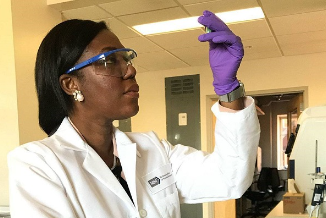美国国家酒精滥用和酒精中毒研究所(NIAAA)是美国国立卫生研究院的27个研究所和中心之一。
NIAAA的使命是产生和传播有关酒精对健康的影响的基本知识,并应用这些知识来改善整个生命周期中酒精相关问题的诊断,预防和治疗,包括酒精使用障碍。
NIAAA通过以下方式在国家减少酒精相关问题的努力中发挥领导作用:在广泛的科学领域开展和支持与酒精相关的研究,包括遗传学,神经科学,流行病学,预防和治疗;与其他研究机构和联邦计划就酒精相关问题进行协调和合作;与从事酒精相关工作的国际,国家,州和地方机构,组织,机构和计划合作;将研究结果翻译和传播给医疗保健提供者,研究人员,政策制定者和公众。
NIAAA通过特殊计划和参与特别委员会来促进几个关键研究领域的进步。重点研究领域包括:
药物开发
NIAAA的药物发展计划侧重于为那些患有酒精使用障碍和酒精引起的器官损伤的人扩大安全有效的药物选择。药物发展计划为开发新型药物治疗的学术研究机构和小型企业提供资金赠款和合同。除了开发新化合物外,该计划还鼓励应用评估有希望用于未充分研究的酒精依赖人群的药物,包括:合并症患者、共病药物滥用患者、合并症患者、青少年、年轻人。
此外,NIAAA成立了一个新项目小组:临床研究小组(NCIG),为了可以快速有效地测试用于酒精治疗的新化合物。其中,NCIG与私营企业合作,鼓励研究和开发治疗酒精使用障碍的新药物,并加快将这些药物推向市场的漫长过程。
未成年人饮酒
NIAAA的未成年人饮酒研究计划的使命是更好地了解迫使青少年开始饮酒,继续饮酒以及发展到有害使用,滥用和依赖的因素。该倡议使用发展方法分析与未成年人饮酒有关的证据。这种方法基于来自多个领域的趋同证据,表明未成年人饮酒最好在发展框架内解决和理解。NIAAA目前关注的具体领域包括:酒精对大脑发育的影响;对儿童和青少年进行酒精使用和酒精使用障碍风险筛查。
大学生饮酒预防
自2000年开始以来,该倡议支持和刺激了对大学生饮酒和相关问题的流行病学和自然史的研究。该倡议旨在:以可访问和实用的方式提供基于科学的信息;鼓励大学利用这些信息促进预防和干预活动;设计和测试干预措施,预防或减少大学生中与酒精有关的问题。为了促进这些目标,NIAAA支持了30多个针对大学年龄青年的项目。
近来,NIAAA召集了一个新的学院校长工作组,以:为研究所的未来研究方向提供意见;就NIAA新材料对大学校长最有帮助提供意见;推荐与大学管理人员沟通的策略。为了提高对大学饮酒后果以及预防策略的认识,NIAAA还维护了一个大学饮酒预防网站。该网站提供有关大学生酗酒和酗酒问题的全面研究信息。
胎儿酒精谱系障碍
NIAAA有一个关于胎儿酒精谱系障碍(FASD)的大型研究计划,赞助了预防,治疗酒精使用障碍妇女,改善胎儿酒精谱系障碍诊断,提高对酒精对未出生婴儿影响的了解以及制定有效的干预措施以减轻对产前暴露于酒精的人的健康影响的项目。
此外,NIAAA通过参加胎儿酒精谱系障碍机构间协调委员会(ICCFASD),促进和推进关于胎儿酒精谱系障碍的新研究。该委员会可以协调所有寻求解决胎儿酒精谱系障碍所构成挑战的联邦机构的活动。




The National Institute on Alcohol Abuse and Alcoholism (NIAAA) is one of 27 institutes and centers of the National Institutes of Health.
NIAAA's mission is to generate and disseminate basic knowledge about the effects of alcohol on health and apply that knowledge to improve the diagnosis, prevention, and treatment of alcohol-related problems across the life cycle, including alcohol use disorders.
NIAAA provides leadership in national efforts to reduce alcohol-related problems by: conducting and supporting alcohol-related research across a wide range of scientific fields, including genetics, neuroscience, epidemiology, prevention, and treatment; Coordinate and collaborate with other research institutions and federal programs on alcohol-related issues; Collaborate with international, national, state, and local agencies, organizations, agencies, and programs working on alcohol-related issues; And translating and disseminating research findings to healthcare providers, researchers, policy makers, and the public.
NIAAA promotes progress in several key research areas through special programs and participation in select committees. Key research areas include:
Drug development
NIAAA's Drug Development program focuses on expanding safe and effective drug options for those suffering from alcohol use disorders and alcohol-induced organ damage. The Drug Development Program provides financial grants and contracts to academic research institutions and small businesses that develop novel drug treatments. In addition to developing new compounds, the program encourages the application of drugs that show promise for use in understudied alcohol-dependent populations, including: people with comorbidities, people with comorbidities, adolescents, and young adults.
In addition, NIAAA has established a new project group, the Clinical Research Group (NCIG), to enable rapid and effective testing of new compounds for alcohol treatment. Among other things, the NCIG is working with private industry to encourage research and development of new drugs for alcohol use disorders and accelerate the lengthy process of bringing these drugs to market.
Underage drinking
The mission of NIAAA's Underage Drinking Research Program is to better understand the factors that force youth to start drinking, continue drinking, and progress to harmful use, abuse, and dependence. The initiative uses a developmental approach to analyze the evidence related to underage drinking. This approach is based on convergent evidence from multiple areas, showing that underage drinking is best addressed and understood within a developmental framework. Specific areas of current NIAAA focus include: the effects of alcohol on brain development; And screening children and adolescents for alcohol use and risk of alcohol use disorders.
Drinking Prevention for College Students
Since its inception in 2000, the initiative has supported and stimulated research into the epidemiology and natural history of alcohol use and related problems among college students. The initiative aims to: provide science-based information in an accessible and practical way; Encourage universities to use this information to promote prevention and intervention activities; And design and test interventions to prevent or reduce alcohol-related problems among college students. To advance these goals, NIAAA supports more than 30 programs for college-age youth.
Recently, NIAAA convened a new Working group of College Presidents to: advise on future research directions for the Institute; To advise on how new NIAA material would be most helpful to university presidents; Recommend strategies for communicating with university administrators. To increase awareness of the consequences of college drinking as well as prevention strategies, the NIAAA also maintains a college drinking prevention website. This site provides comprehensive research information on binge drinking and alcohol problems among college students.
Fetal alcohol spectrum disorders
NIAAA one of fetal alcohol spectrum disorders (FASD) of large research program, sponsored the prevention and treatment of alcohol use disorders, women improve fetal alcohol spectrum disorder diagnosis, improve the understanding of alcohol affect unborn babies and make effective intervention measures to alleviate the health effects of prenatal exposure to alcohol people project.
In addition, NIAAA promotes and advances new research on fetal alcohol spectrum disorders by participating in the Inter-Agency Coordinating Committee on Fetal Alcohol Spectrum Disorders (ICCFASD). The ICCFASD can coordinate the activities of all federal agencies seeking to address the challenges posed by fetal alcohol spectrum disorders.